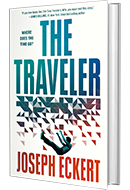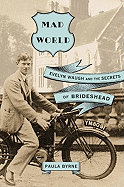The Portland Business Journal reported that Powell’s Books will relocate "its 10,000-square-foot Tech Store into a Powell's training space about half that size near the flagship Powell’s bookstore on Burnside. The move should be complete by September 1."
The move comes after several initiatives launched during recent years to boost sales were unsuccessful in overcoming "changes in its core business, selling computer books," the Journal noted.
In an e-mail sent to employees, Miriam Sontz, CEO of strategic development, said, "We believe it is time to more aggressively address this changing marketplace.... There are many challenges in the book industry and our goal is to keep Powell’s competitive and strong. Our ability to be flexible and adapt to a changing retail landscape is of paramount importance to our long term survival and prosperity."
---
Jon Stewart will return to BookExpo America for the first time since 2004 to serve as Master of Ceremonies for the Author Breakfast on Thursday, May 27, featuring Condoleezza Rice, John Grisham and Mary Roach.
Other speakers on this year's BEA special events programs include Cory Doctorow, Sarah Ferguson, William Gibson, Sara Gruen, Christopher Hitchens, Patton Oswalt, Richard Peck and Mitali Perkins.
"I am amazed by the exceptional array of talent and distinguished public figures who have made themselves available to speak at BEA," said events director Steven Rosato. For BEA's lineup of speakers and events, go here.
---
At last month's ABA Winter Institute, Christie Olson Day, co-owner of Gallery Bookshop & Bookwinkle's Children's Books, Mendocino, Calif., shared her experience with "a bookstore self-exam conducted by Gallery staff [that] had provided enormous benefits, including sales-boosting results." The subject had come up in a conversation about Paco Underhill's Why We Buy, Bookselling this Week reported.
"From a purely financial point of view, [the self-exam] proved very valuable," she said. "And it was very inexpensive. There would be no reason for anyone not to do this once a year or more frequently. Why We Buy is a great read, and that the fact that it features a bookstore makes it all the more cool."
Olson Day said that Gallery's self-exam "was not going to involve the same level of sophistication or time described in the book, but we were willing to try it.... It helped us identify what we now call the 'magic spot.' We discovered that there is this one corner--where we now have our front table--if we put the right book with a shelf-talker, we can almost guarantee that it will be the bestselling book in the store. We've sold enormous numbers of books because we now know about the magic spot."
In addition to specific changes in the store's setup, she added that the evaluation "was empowering and was a morale builder for staff. It was just a neat thing for staff members to do. It was something that we could do for ourselves. The payoff of useful information, along with intangible benefits, was enormous."
---
Bookselling this Week spoke with Nicole Magistro, co-owner of The Bookworm of Edwards, Edwards, Colo., who said her bookshop made the transition to a new IndieCommerce website last December "specifically so that we could play the e-book game. The interest is there."
Since the change, e-books have accounted for 10% of the bookshop's website sales, "but Magistro and her staff continue to look for new ways to ensure that their long-time customers think of their local bookstore first when they buy books in digital format," BTW wrote.
---
In its e-newsletter, Skylight Books, Los Angeles, Calif., reported it has created a television ad with "the goal of reaching new customers in these challenging times." The experiment is "part of a test market program Time Warner Cable is doing with a number of small businesses. The commercial itself was created by young filmmaker and 'friend of the store,' Jamieson Fry and his crack production team, and it will air (starting this month) on numerous cable channels in the Los Feliz, Silver Lake, Echo Park, Eagle Rock, Highland Park, East L.A. and Hollywood Hills areas."
---
A week without books sounds like an ultimate--and unlikely--sacrifice for most of us, but the Guardian's Bibi van der Zee put that notion to the test by going cold biblio-turkey.
"I decided to try giving up books for a week because I have come to the point where I wonder if they are holding me back," she wrote, but ultimately concluded that she is "never giving up books again."
---
Vampire milestone. For the first time in more than two years, a Stephenie Meyer Twilight series book is not ranked among USA Today's top 20 bestsellers, but that will likely change with the release of the movie version of Eclipse in June.






SHELFAWARENESS.1222.S1.BESTADSWEBINAR.gif)



 Candlewick's Handselling Indie Recognition Program (CHIRP), which launches with thie house's spring 2010 list, "salutes the expertise and enthusiasm of children's handsellers across the country" and aims to help booksellers handsell better, the publisher said.
Candlewick's Handselling Indie Recognition Program (CHIRP), which launches with thie house's spring 2010 list, "salutes the expertise and enthusiasm of children's handsellers across the country" and aims to help booksellers handsell better, the publisher said. At the South Carolina Book Festival, held last weekend in Columbia, Heidi Durrow, author of The Girl Who Fell from the Sky (Algonquin), spoke on two panels and attended the Author Brunch. Durrow (directly under her sign) is pictured with members of her "five-star table" at the brunch.
At the South Carolina Book Festival, held last weekend in Columbia, Heidi Durrow, author of The Girl Who Fell from the Sky (Algonquin), spoke on two panels and attended the Author Brunch. Durrow (directly under her sign) is pictured with members of her "five-star table" at the brunch.

 Frozen in Time by Ali Sparkes won the Blue Peter Book of the Year award for children's fiction, which is judged by a panel of 8- to 9-year-old readers, the
Frozen in Time by Ali Sparkes won the Blue Peter Book of the Year award for children's fiction, which is judged by a panel of 8- to 9-year-old readers, the  Opening lines of books we want to read:
Opening lines of books we want to read:  Dexter Palmer's first novel, The Dream of Perpetual Motion, was published on March 2 by St. Martin's Press. He holds a Ph.D. in English Literature from Princeton University and lives in Princeton, N.J.
Dexter Palmer's first novel, The Dream of Perpetual Motion, was published on March 2 by St. Martin's Press. He holds a Ph.D. in English Literature from Princeton University and lives in Princeton, N.J.
 "I was early drawn to panache," Evelyn Waugh proclaimed. Paula Byrne makes it clear in her entrancing study of Waugh and the inspirations for his novels that he was equally strongly repelled by anyone dull, boring and/or unattractive. From early on, Waugh found his biological family tedious and was on the constant lookout for spirited companions elsewhere. His quest could begin in earnest when he escaped from home to Lancing, a distinctly second-rate public school. It would be panache or nothing forever after.
"I was early drawn to panache," Evelyn Waugh proclaimed. Paula Byrne makes it clear in her entrancing study of Waugh and the inspirations for his novels that he was equally strongly repelled by anyone dull, boring and/or unattractive. From early on, Waugh found his biological family tedious and was on the constant lookout for spirited companions elsewhere. His quest could begin in earnest when he escaped from home to Lancing, a distinctly second-rate public school. It would be panache or nothing forever after. 
 Slow Media isn't the same as no-media. Slow Media even has a
Slow Media isn't the same as no-media. Slow Media even has a